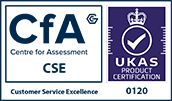General photocopying guidance
Copyright exists for 70 years from the death of the author.
Under the “fair dealing” exception of the Copyright, Designs and Patents Act, practice suggests that copies may be made for the purpose of non-commercial research or private study up to these limits:
- one article from a single issue of a journal;
- a reasonable proportion of any other published work regardless of medium.
From 31 October 2003 copying for commercial purposes has been excluded from the fair-dealing exception. Members of the university may continue to copy for commercial purposes by virtue of the CLA Higher Education Licence (see below). However, the exclusions listed should be noted.
Restrictions also apply to material in electronic format, (disc, CD-ROM or Internet) and similar restrictions apply to downloading and printing. Some of these sources will also have licence restrictions that control what a user may or may not do.
All photocopying of copyright material carried out anywhere within the University must conform to the Copyright, Designs and Patents Act 1988 or to any of the subsequent licence agreements which the University has signed. Alternatively anybody making photocopies must have the express permission of the copyright holder. Any breach constitutes a criminal offence.
Inter-Library Loans
Inter-Library Loans are supplied under the "Fair Dealing" provision. 1 copy, electronic or print, can be provided to students and/or academic staff to support their studies and research. Requests need to comply with copyright law. More details can be found on the Inter-Library Loans webpage.
Members of the University who require ILLs for commercial purposes must use the copyright fee paid service and pay the cost.
Guidance on terminology
The term "commercial" is currently undefined. The following guidance is offered as advice only and has no legal status. Further information can be obtained from the Copyright Office at the British Library. They have a useful FAQ page.
Activities unlikely to be considered as commercial
Copying by currently registered university students in support of credit bearing courses. Copying by such students who are sponsored by commercial companies will still be considered as educational and therefore non-commercial.
Activities that might be considered as commercial
- Work done for publication for which the author will receive payment or royalties.
- Work done in preparation for a conference paper at which the speaker will be paid over and above expenses.
- Research undertaken or contracted out by a commercial company in support of its commercial activities.
- Research whose results will be passed to a commercial company for commercial use.
- Work done by a spin-off company owned by the University or a charity, even if all profits are covenanted to the University or the charity.
Activities that might be considered commercial, depending on circumstances
Work done by university staff or students as part of research sponsored by a commercial company. Key questions to ask:
- Is there a known and identified commercial goal to the research?
- Will the research results be used in the commercial development of a product or a service?


